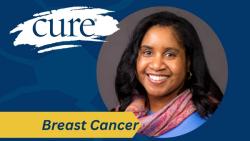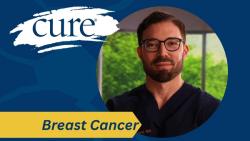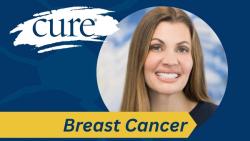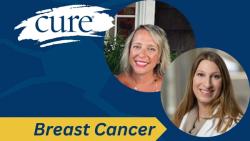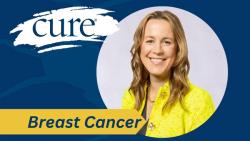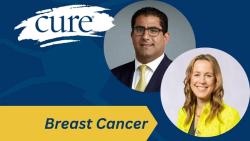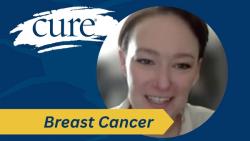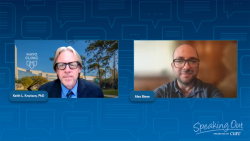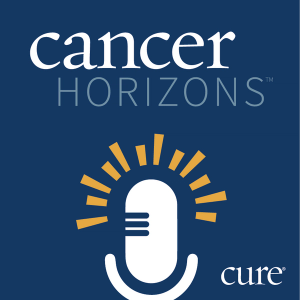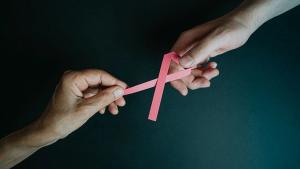HER2-Positive Breast Cancer: Advice from Patients and Caregivers
Sophie Mueller provides advice for patients and caregivers with breast cancer who may be in similar situations.
Sophie Mueller: My advice for caregivers is, for the surgical aspect, you need to listen for a lot of things. Those little [affirmations] like "You're so tough, you're so strong, you're doing great," are fine, but I could definitely tell if she just was kind of smiling and nodding that it didn't really help her. It's more listening to what they need because my mom needed very different things than we thought she would. We thought she was going to be completely nauseous. The day she got home from chemo she wasn't, she was just tired, so we were like, "OK. We'll change our plans.” Those needs, plus just listening to what they need mentally and emotionally, because some days she would want us to be with her all day, and other days, she just wanted to sit with the dogs and hang out. Things changed, and there's not really a schedule with cancer. It's frustrating, but for someone who really likes the schedule, it was frustrating. 1 thing I learned is to not push them, because their bodies are already being pushed so hard with chemo and surgery, but you need to be there. You just need to be there to support them and lift them up. I think that was the biggest lesson I learned; just listening and being there, a presence rather than a performer in the situation.
The community that we had was really wonderful. Several of our neighbors were, but 1 of them was phenomenal, she continued to check up on us and she was the one who spearheaded all of the things, and I'm so grateful to her for that. It just made certain things easier, little things like a gift card for dinner. We have so many Panera gift cards in our bank now. It was a really easy option because it was something she would eat, and it solved an issue that we were having, so just being there and being receptive to what people need, I think, is the best thing you can do if you're a spectator in this situation.
Jocelyn Mueller: Thank you for joining me today and sharing your perspective. To our viewing audience, thank you for joining us. We hope you found this CURE Expert Connections program to be rich and informative.
Transcript edited for clarity.
Related Content
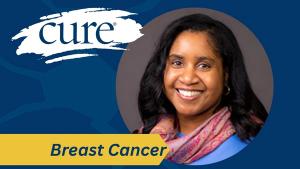 The Power of Personalized Care in Breast Cancer Treatment
The Power of Personalized Care in Breast Cancer TreatmentFebruary 6th 2026
 Breaking Down Metastatic Triple-Negative Breast Cancer Treatments
Breaking Down Metastatic Triple-Negative Breast Cancer TreatmentsDecember 31st 2025
 FDA Grants Breakthrough Designation to Zovegalisib for Breast Cancer
FDA Grants Breakthrough Designation to Zovegalisib for Breast CancerFebruary 4th 2026
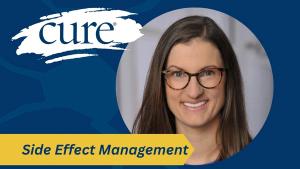 Biotin Supplements May Complicate Cancer Care, Research Shows
Biotin Supplements May Complicate Cancer Care, Research ShowsFebruary 2nd 2026
View additional resources on CureToday.com


